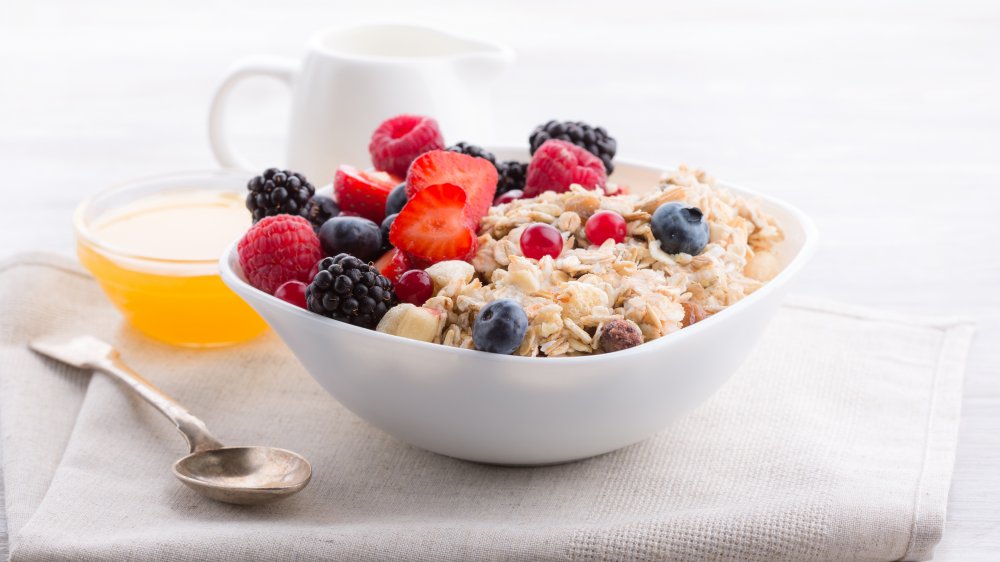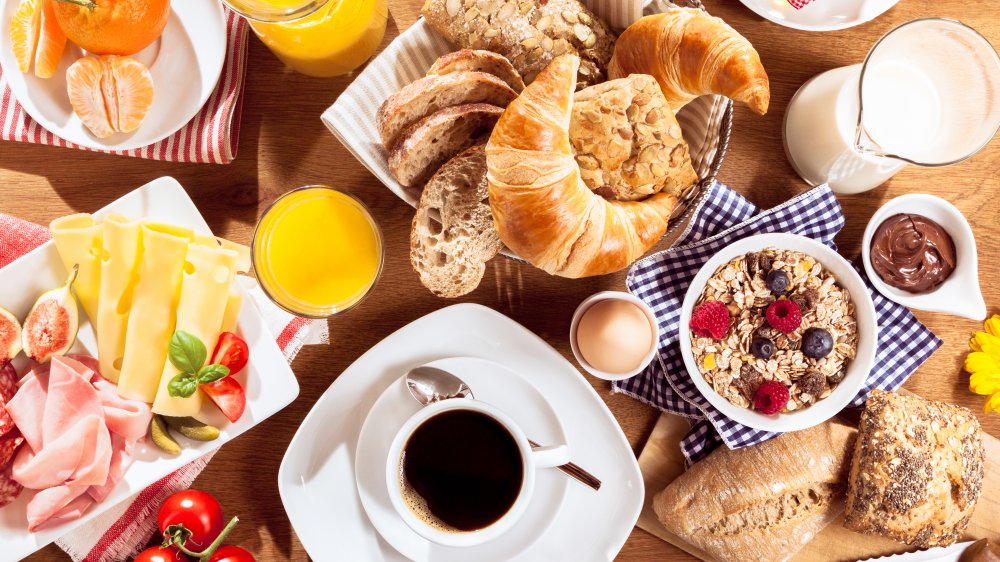Why Skipping Breakfast Is More Risky Than You Think
If your mornings as an adolescent consisted of your parents nagging you to eat breakfast, consider yourself lucky — breakfast really is one of the most important meals of the day, and skipping it is way riskier than you think. And according to a 2019 study in the Journal of the American College of Cardiology, skipping breakfast is linked with an increased risk of cardiovascular disease. Wei Bao, M.D., assistant professor of epidemiology at the University of Iowa's College of Public Health, and lead author of the study, explained to Insider, "Non-breakfast eaters had 87 percent higher risk of dying from cardiovascular disease."
Worse still, as Kristi King, a senior clinical dietitian at Texas Children's Hospital told Eat This, Not That!, if you don't eat in the morning, you're also probably at "higher risk of Type 2 diabetes, higher risk of obesity due to insulin resistance and hormone regulation, as well as increased risk for heart attacks and hypertension." Oh, and you're most likely depriving yourself of essential nutrients your body needs to power through the day, too.
A nutritious breakfast can help fight off various diseases
But there's no point eating breakfast if you're not going to eat something that's nutritionally sound. For example, steel-cut oats are a great, healthy option. "A single cup of steel-cut oats contains about 12 grams of protein as well as beta-glucan, a viscous fiber that helps promote a feeling of fullness," Jim White, R.D., owner of Jim White Fitness & Nutrition Studios, told SHAPE. "It's also very rich in antioxidants to help protect heart health and reduce blood pressure." Eggs, Greek yogurt and fruit, and nut butter or avocado on toast are equally as good.
Ultimately, if you want to stop skipping breakfast, it's all about trying to make habit of eating when you wake up. "Start off with a light bite, such as a piece of fruit or low-fat yogurt," dietitian Alison Hornby recommended to the NHS. "After a while, your morning appetite will naturally increase, and you'll probably find you eat less throughout the day, including snacks," she continued.


